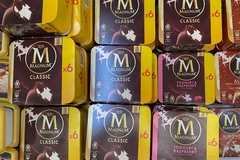
- Industry news
Industry news
- Category news
Category news
- Reports
- Key trends
- Multimedia
- Journal
- Events
- Suppliers
- Home
- Industry news
Industry news
- Category news
Category news
- Reports
- Key trends
- Multimedia
- Events
- Suppliers
Cargill’s Santarém Port Terminal Gets Operating Permit

The new license will enable Cargill to expand the terminal’s storage capacity to 90,000 thousand metric tons of grains.

8 Aug 2012 --- Yesterday the State of Pará Environmental Secretariat (SEMA) issued the Operating Permit for Cargill’s Santarém port terminal, as well as the Installation Permit to expand those facilities. The license formalizes SEMA’s technical opinion on the feasibility of that investment and will enable Cargill to go ahead and make further investments in the terminal.
The documents were handed to the company during the opening of the Lower Amazon Agricultural Fair in Santarém, PA, by the state of Pará Environmental Secretary, José Alberto Colares, one of many authorities attending the event.
The new investments to expand the facilities were considered in the Environmental Impact Study and Environmental Impact Report (EIA-RIMA) of the terminal. The new license will enable Cargill to expand the terminal’s storage capacity to 90,000 thousand metric tons of grains. The company also plans to upgrade the logistics involving delivery, storage, and shipping of grains. “The investments reinforce Cargill’s effort and commitment to Santarém and help develop Brazilian agribusiness,” explains Clythio Buggenhout, Cargill’s director of ports.
The delivery of the operating permit concludes a democratic process the Santarém terminal EIA-RIMA process represented. Four public hearings held in four municipalities (Santarém, Belém, Alenquer e Belterra) were attended by more than 90 institutions and had the input of local leaders, residents, public and private organizations, NGOs, and farmers.
Responsible production
Cargill carries out a series of initiatives to ensure more responsible production of soybeans in that region. In a partnership with an NGO, The Nature Conservancy (TNC), which goes back to 2003, Cargill develops the Sustainable Soybean project, an initiative designed to improve farming practices and encourages local farmers to obtain their Rural Environmental Registry (CAR). The company is also part of the Soybean Moratorium, a agreement between NGOs, businesses, and the federal government, which bans trading of soybeans grown in areas deforested after July 2006.










